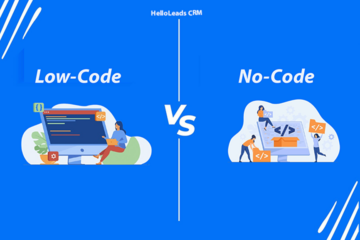
The sales profession is challenging. Every high-performance sales development team needs predictable rules to follow to achieve success. For things to run well, your team has to feed your account managers with a steady flow of high-quality meetings and demos. The entire pipeline will be properly covered if your team does its job well. To train a high-performance sales team, there are many ways.
Making sure your sales training techniques give your team the skills, resources, and expertise to effectively perform, is a great place to start after putting quality personnel in place. Prospecting leads and closing sales are critical components of a successful sales business.
The following are the top nine ways:
1. Include Sales Training in Onboarding:
Help your newly hired salespeople feel comfortable and confident. Make them familiar with the vision and mission of your business and engage them with the culture and sales practices of your organization. It is important that your onboarding program includes an overview of the tools and knowledge your employees need, to perform their job effectively.
2. Improve sales process training:
Having a standard sales guide ensures transparency and prevents mistakes from occurring. Each team member should go through the sales process periodically or every time when a change is done. Your team should be able to Identify, nurture, qualify, and convert leads into customers.
Below are the important areas to be included in your sales guide.
- Profile of your target audience
- Describe your sales funnel
- How your sales pipeline works
- Prospecting methods
- How to schedule meetings with new prospects
- Prospect qualification methods
- Defining prospects’ needs and pain points
- Offers, proposals, and closing strategies
- Immediately after a customer is closed on a deal
3. Develop your professionalism:

Give your team members access to ongoing, thorough sales training and education. Organize conferences, seminars, workshops, mentoring programs, corporate training, etc. Drive responsibility closer to the consumer by empowering both direct and indirect members of the sales team. Keeping the Golden Rule in mind, “The carrot is more effective than the stick” is the mantra for success.
4. Custom sales training:
Determine each member of your team’s individual sales roles in detail. Then, create training based on their primary responsibilities. Account executives should be able to deliver an effective sales pitch, overcome objections, and close deals. Account managers should be adept at identifying opportunities to upsell and cross-sell other products and services.
5. Get to know your ideal customer:
Sales reps should receive training on the typical problems and objections they will face to persuade customers to purchase your goods and services. Create a customer profile that outlines your target customer’s needs by learning about their demographics, interests, hobbies, likes, dislikes, and background. Talk through each section with your sales reps to teach them how to create customer profiles.
6. Utilize your high-performing sales team for sales training:
Use role-playing and shadowing as part of your sales training program. High-performing reps can help you evaluate a rep’s strengths and opportunities for improvement. Training high-performers to be sales coaches is a training exercise in itself. As a result, they gain coaching skills and are prepared for sales leadership roles.
7. Train with sales tools:

Demonstrations on how to use the software that will help you do your job well should be included in new hire sales training. As per experts, even the most talented and experienced salespeople are rarely successful if they don’t understand how tools can help them do their job well.
Take advantage of webinars, knowledge bases, and video tutorials for the sales software you use. Many sales software tools provide training to help you stay updated on new features and learn how to use them more effectively.
8. Motivational sales training:

Developing incentive-based sales training can be done for the entire department, for teams, or for individual representatives. As an example, you could reward trainees for completing training modules or achieving milestones. Providing effective incentives does not require a large budget. Your sales training program will be more effective if you foster friendly competition.
9. Evaluate performance:
Identify a particular area of their job that they struggle with and ask them how they perceive their performance. Regular Performance assessments help to assess the effectiveness of completed sales training. Make sure that any constructive criticism is concluded with a genuine compliment.
Conclusion:
Every sales-focused business should include sales training as a fundamental component. Creating intentional strategies for training new hires and providing ongoing training empowers your entire sales team. “Don’t sweat the small stuff” – get used to the 10% that does not go as planned.
Share this blog :











Excellent write up. It is resourceful and result oriented..
Thanks for these tips, I will try these.
Thank you for your information about fitness. This is very important for me and I’m very interested in your information.